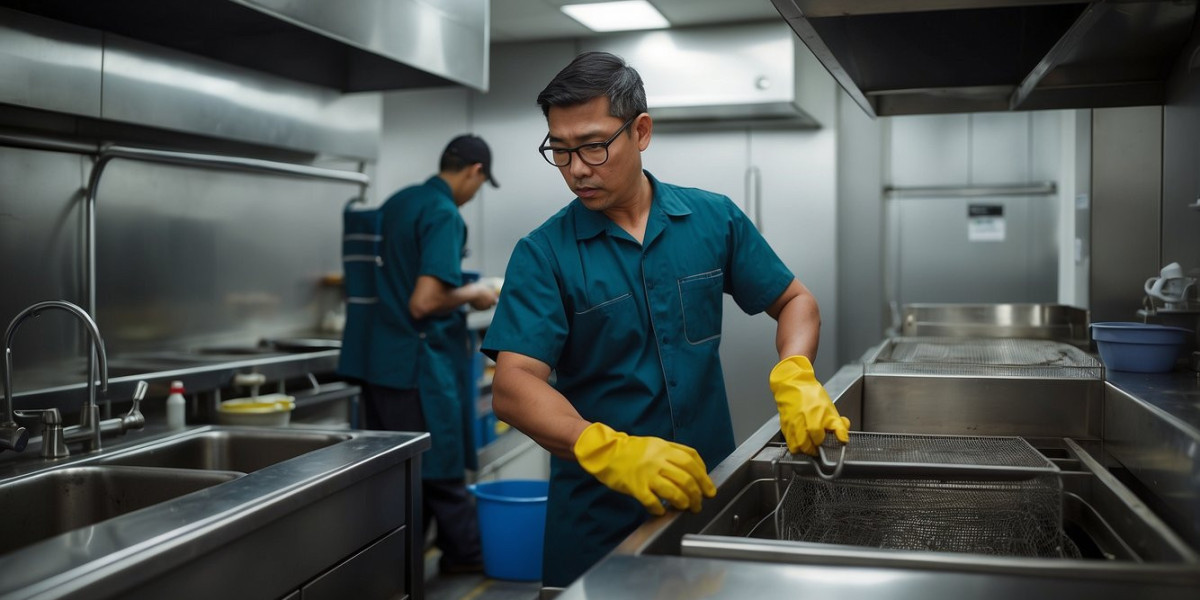In today’s world, where environmental concerns are becoming more pressing, adopting sustainable cleaning practices is no longer just an option — it’s a responsibility. By partnering with the best cleaning services company in Dubai, you can integrate eco-friendly cleaning methods that not only safeguard your kitchen’s hygiene but also contribute to the well-being of the planet. This blog explores sustainable cleaning practices for your kitchen that promote health, efficiency, and environmental conservation.
Why Sustainable Cleaning Matters
The cleaning products and practices you choose can have a significant impact on both your health and the environment. Traditional cleaning solutions often contain harmful chemicals that:
Pollute waterways when washed down the drain.
Emit volatile organic compounds (VOCs) that degrade air quality.
Pose health risks to humans and pets.
By adopting sustainable cleaning practices, you can:
Minimize your carbon footprint.
Reduce exposure to harmful toxins.
Extend the lifespan of your kitchen appliances and surfaces.
Top Sustainable Cleaning Practices for Kitchens
1. Use Eco-Friendly Cleaning Products
Switch to biodegradable and non-toxic cleaning solutions that are free of harsh chemicals. These products are just as effective as conventional cleaners without causing harm to the environment.
Benefits:
Safer for your family and pets.
Reduces water pollution.
Minimizes packaging waste when purchased in bulk or refillable containers.
2. Opt for DIY Cleaning Solutions
Homemade cleaners are a cost-effective and eco-friendly alternative. Common household ingredients such as vinegar, baking soda, and lemon juice can tackle a variety of cleaning tasks.
DIY Cleaning Recipes:
All-Purpose Cleaner:
Mix equal parts of white vinegar and water, and add a few drops of essential oil for fragrance.Degreaser:
Combine baking soda with a small amount of water to create a paste for scrubbing greasy surfaces.Glass Cleaner:
Mix 1 cup of water, ½ cup of vinegar, and a tablespoon of cornstarch for streak-free results.
3. Reduce Single-Use Cleaning Items
Single-use cleaning tools like paper towels and disposable wipes contribute to unnecessary waste. Replace them with reusable options that are just as effective.
Suggestions:
Use microfiber cloths for wiping surfaces.
Opt for washable mop heads instead of disposable ones.
Choose bamboo or recycled sponges.
4. Save Water During Cleaning
Efficient water usage is a cornerstone of sustainable cleaning. Implement practices that reduce water wastage without compromising cleanliness.
Water-Saving Tips:
Rinse dishes in a basin rather than under running water.
Use a dishwasher only when it’s full.
Turn off the faucet while scrubbing or wiping surfaces.
5. Properly Dispose of Kitchen Waste
Segregating and responsibly disposing of kitchen waste is vital for maintaining a sustainable kitchen. Improper disposal can lead to environmental pollution and health hazards.
Steps for Responsible Waste Management:
Separate organic waste for composting.
Recycle plastic, glass, and metal containers.
Avoid pouring grease or oil down the drain; use designated grease disposal services.
Advanced Practices for Sustainability
Conduct Regular Maintenance
Routine maintenance ensures that your kitchen appliances run efficiently, conserving energy and resources.
Checklist:
Clean and descale your dishwasher and coffee maker regularly.
Inspect and clean the grease trap and kitchen exhaust systems.
Sharpen and maintain knives to reduce wear and tear.
Invest in Energy-Efficient Appliances
Energy-efficient appliances not only reduce utility bills but also have a lower environmental impact.
What to Look For:
Energy Star-certified appliances.
Induction cooktops instead of gas stoves.
LED lighting for under-cabinet and overhead illumination.
Benefits of Sustainable Cleaning Practices
Adopting eco-friendly kitchen cleaning habits comes with numerous benefits:
Environmental Benefits
Reduces pollution and conserves natural resources.
Decreases landfill waste.
Protects aquatic life by preventing chemical runoff.
Economic Benefits
Saves money on cleaning supplies through DIY solutions and reusable items.
Extends the life of appliances and surfaces.
Health Benefits
Minimizes exposure to toxic chemicals.
Improves indoor air quality.
Reduces allergies and respiratory issues.
Making the Transition to Sustainability
Transitioning to sustainable kitchen cleaning practices is easier than it may seem. Start small by replacing one or two conventional items with eco-friendly alternatives and gradually build from there.
Tips for a Smooth Transition:
Educate yourself and your household about the benefits of sustainability.
Create a checklist of eco-friendly habits to adopt.
Support brands and services that prioritize environmental responsibility.
Conclusion
Sustainable cleaning practices are an essential step toward creating a healthier home and a cleaner planet. By using eco-friendly products, conserving water, and reducing waste, you can protect your kitchen while making a positive environmental impact. Remember, every small change contributes to a larger movement toward sustainability. Start today and inspire others to join the journey!








